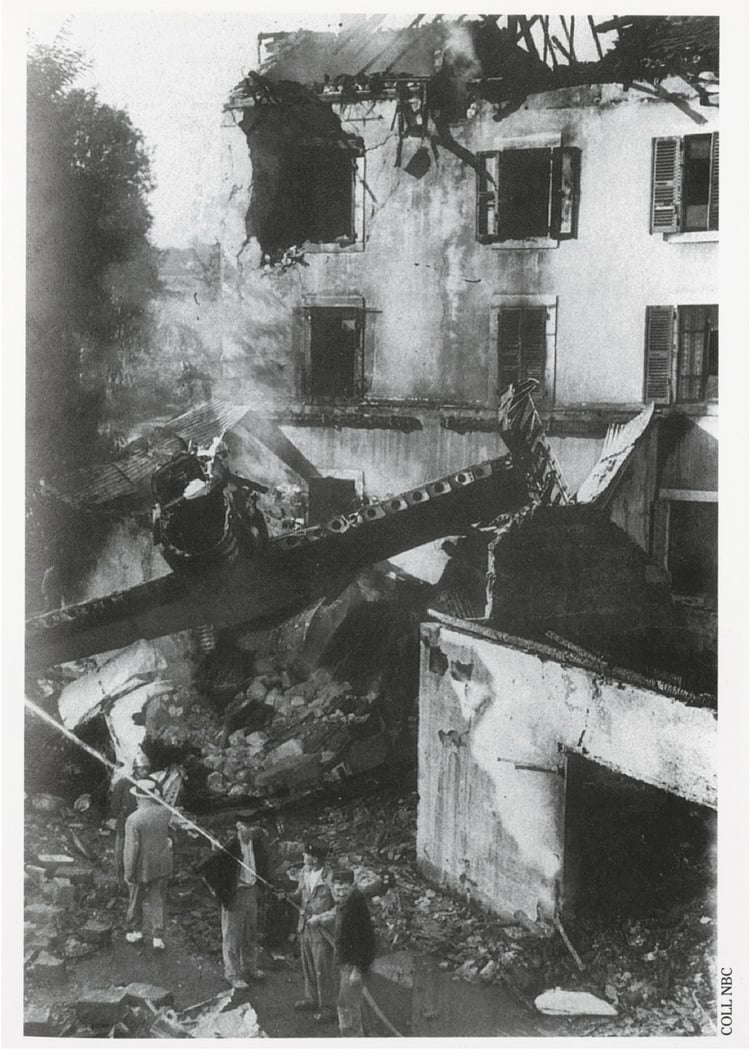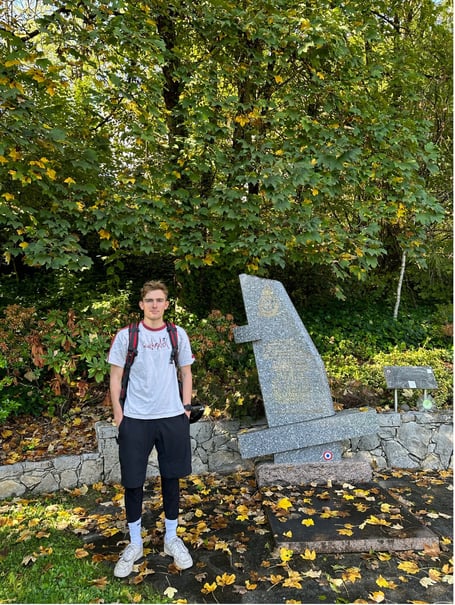Adam Hart grew up hearing a remarkable story - one of courage, defiance, and trust that defied all logic.
Now 25, the historian and author uncovers the astonishing tale of his great-grandfather, Frank Griffiths, in his new book Operation Pimento: My Great Grandfather’s Great Escape.

+ 5
(View All)
Crashed remains of Halifax bomber, 1943
Frank, a Welsh RAF pilot, was the sole survivor of a Halifax bomber that crashed in Meythet, France - around 40km south of Geneva, on 15 August 1943. Thrown from the aircraft and landing in telephone wires, he miraculously survived. Even more astonishingly, he evaded Nazi capture after being rescued by French Resistance fighters, who smuggled him across borders and eventually back to Britain.
Adam retraced his great-grandfather’s 108-day journey across war-torn Europe, navigating perilous terrain and meeting descendants of those who risked everything to protect a stranger.
In the process, he uncovered the story of another hero - Flying Officer Sydney ‘John’ Congdon from Totnes. The 26-year-old navigator was one of six aircrew members who died in the crash, along with five villagers, including two children.
Congdon had been just one mission away from completing his second tour with RAF’s 138 Squadron, a covert unit tasked with delivering agents and supplies to resistance groups under the cover of night. He had already been awarded the Distinguished Flying Medal for completing his first tour - a feat with a survival rate of less than 50%.
“He won that medal for completing 30 missions in Bomber Command, which was an incredible achievement,” Adam explains. “He was flying his 29th mission with 138 Squadron and would likely have moved on to training or a desk job. He was so, so close.”
To this day, the village of Meythet holds an annual memorial service in honour of the crew and local civilians who lost their lives. Adam was moved to see how deeply the community remembers them - even 80 years on.
“On the anniversaries, they bring out all the local schoolchildren, who carry large posters of the airmen and villagers who died,” says Adam. “There’s a big poster of John Congdon paraded through this little French village - it’s incredible. And yet, here in the UK, we barely know about it.”
Congdon, who had married Mary Elizabeth Lake at St Mary’s Church in Totnes on 19 November 1942, left behind a pregnant widow. Helen Rush, Congdon’s daughter, never met her father but was told of the pivotal role he played in the war efforts.
Adam added: “Having grown up hearing Frank’s story, I always thought of my great-grandfather as a hero. But during my journey across Europe, I realised the true heroes were the people who risked everything to save him. Some were later imprisoned, tortured or executed. Yet their descendants are proud of the role their ancestors played.”
Adam Hart’s book, a deep dive into the lives of the courageous crew and the treacherous course undertaken by Frank Griffiths, is now available on Amazon, Waterstones and WHSmiths.


.jpeg?width=209&height=140&crop=209:145,smart&quality=75)


Comments
This article has no comments yet. Be the first to leave a comment.